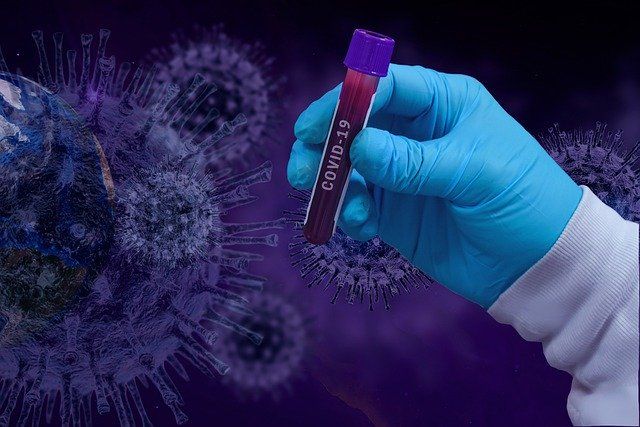Using patient data, artificial intelligence can predict with a 90 percent accuracy if a person infected with COVID-19 will die, claim researchers at the University of Copenhagen. BMI, gender and high blood pressure were found to be the main indicators.
The research will not only be used for predicting deaths and allocating ventilators (with an 80 percent accuracy), but also help to determine who should be prioritised in the queue for a vaccine.
“We started working on models to help the hospitals, as during the first wave they feared they wouldn’t have enough respirators for patients,” explained Professor Mads Nielsen from the Department of Computer Science at University of Copenhagen.
“Our results can also be used as a more fine-grained way of identifying who needs the vaccine the most.”
Older men with high blood pressure at high risk
The data, which is based on 3,944 COVID-19 patents, demonstrated that elderly men with high blood pressure are the most at risk. Additionally, neurological diseases, asthma, diabetes and heart disease can increase the risk.
The research notes that the data can in no way replace a doctor’s assessment, but rather be used as an aid for care.
The Capital Region is planning to utilise the data to potentially advance those at high risk to the front of the vaccine queue. They also hope it will predict the number of patients who will need ventilators. However, some technical work is still needed on the AI before it is ready to be rolled out.
University of Copenhagen: We need to learn that brown fruit is not bad
A new study at the University of Copenhagen argues that Danes should stop throwing away fruit because it’s brown or looks different. The study found that people tend to do so as they associate it looking different with being bad, but now it is time to unlearn this habit. Denmark generates around 716,000 tonnes of food waste every year.
Gum disease increases the risk of bacteria in donor blood
Blood donations can be contaminated with bacteria if the donor has the gum disease periodontitis, according to University of Copenhagen research. It is not dangerous to receive the contaminated blood, but the study suggests that better screening of blood donors is needed. Donors need to be able to speak fluent Danish in order to donate blood in Denmark, thus excluding many expats from doing so.
New research: We look more like primate fish than we previously thought!
A group of researchers at the University of Copenhagen have found that the genetic basis of our lungs and limbs existed over 50 million years ago in primitive fish. This changes the common perception that they developed with the vertebrates’ transition from water to land. The discovery could mean that they in fact helped the transition.
Sweden beats Denmark in race for organic food in the public sector
Sweden is the best, beating Denmark, when it comes to serving organic food in the public sector, according to a report from the University of Copenhagen. This shows how there is a definite room for improvement in the race, as the topic is also being discussed across the rest of the EU. At the moment, 22 percent of food served in the public sector is organic in Denmark.
CO2 capture plants: good for the climate and business
A mobile CO2 capture plant developed by the Technical University of Denmark has for the first time been connected to a functioning biogas plant – to the benefit of both the climate and business. The mill plant in Lyngby is one of the many plants in Denmark where biogas is produced from wastewater, and the mobile plant will allow users to upgrade the gas in an energy-saving way, so that it can be also used for something other than heating.
Alcohol-related liver diseases decreasing
The number of people diagnosed with alcohol-related liver diseases has decreased over the last 10 years in Denmark reports Aarhus University Hospital. Simultaneously, the prognosis for these patients has improved: they have fewer hospital admissions and tend to live longer. This may be attributed to the decrease in alcohol consumption over the past 25 years.
New genetic cause of cardiac arrest and unexpected death in youths
A team of researchers at Aarhus University have established a new genetic explanation for cardiac arrests and unexpected deaths among children and adolescents. CPVT (Catecholaminergic Polymorphic Ventricular Tachycardia), which is an inherited heart disease from a genetic mutation, can cause a dangerous heart rhythm disorder due to exertion or stress. The research has shown how carriers of CPVT face a higher above average risk of dying unexpectedly at an early age.
Increased number of surgeries to help COPD patients
Rigshospitalet in Copenhagen is increasing the number of surgical procedures to help COPD (chronic obstructive pulmonary disease) patients with their shortness of breath. At the moment there are 25-40 annual surgical procedures, but the plan is to increase the number to 75. The operation can be performed on those aged between 45 and 75 and only at Rigshospitalet in Denmark.













